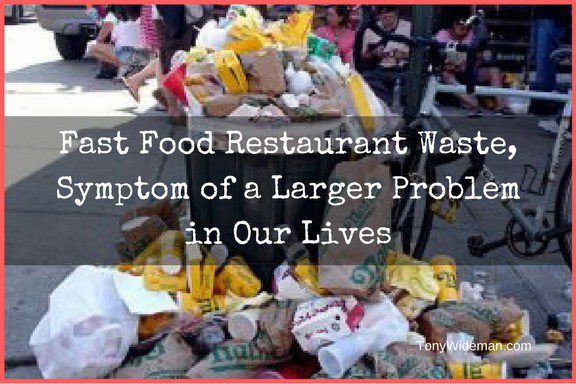Co-op Everything, Death To All Corporations

Co-op Everything, Death To All Corporations might sound a little intense at first glance. However, behind the slogan lies a growing conversation about how co-ops bring more fairness and stability to our communities compared to large corporations. I want to share what’s going on with corporations these days, why co-ops are receiving so much attention, and how replacing corporate dominance with more community-owned alternatives could lead to positive change.
Co-op Everything
We find ourselves living in an era dominated by corporate behemoths whose influence extends far beyond traditional business boundaries. These mega-corporations have evolved into entities that wield unprecedented power over economies, governments, and societies worldwide. Their reach permeates every aspect of our daily lives, from the technology we use to communicate to the food we consume and the media that shapes our understanding of the world.
The concentration of corporate power we witness today represents a fundamental shift from the competitive marketplace envisioned by classical economists. Instead of numerous companies competing on equal footing, we observe a landscape where a handful of giant corporations dominate entire sectors, creating oligopolies and monopolies that stifle innovation, suppress wages, and limit consumer choice.
This corporate consolidation has accelerated dramatically over the past four decades, driven by aggressive merger and acquisition strategies, regulatory capture, and the systematic dismantling of antitrust enforcement mechanisms. The result is a global economy where a relatively small number of multinational corporations control vast segments of production, distribution, and consumption.
How Corporations Undermine Everyday People
Over the years, the gap between large corporations and ordinary people has widened. Corporations often prioritize profits for their shareholders over considering the communities in which they operate. This focus shows up in various ways that can leave everyday people feeling squeezed.
For example, it’s common to see corporations cut corners on worker safety, push down wages, or relocate jobs overseas to reduce costs. Local businesses can’t always keep up, which means you might see a Main Street with more closed shops and fewer family-run stores, while giant chains move in.
Furthermore, some corporations have been caught evading taxes by utilizing loopholes and offshore accounts. When that happens, less money goes toward schools, public health, and infrastructure. People end up paying more or getting less, which adds to the frustration.
Cases like the opioid crisis, widespread pollution by oil companies, food deserts caused by grocery giants, and broken promises about better working conditions are just some examples. The bottom line is that many people have witnessed firsthand how unchecked corporate power can complicate their lives.
Environmental Destruction and Corporate Externalization of Costs
Mega-corporations systematically externalize environmental costs onto communities and future generations while privatizing profits generated through resource extraction and pollution-intensive production processes. This fundamental misalignment between private profit and public welfare represents one of the most destructive aspects of corporate dominance.
Climate change, biodiversity loss, water contamination, and air pollution are directly linked to corporate decisions that prioritize short-term profits over long-term environmental sustainability. These corporations possess the resources and technology necessary to implement sustainable practices, but consistently choose profit maximization over ecological responsibility.
The fossil fuel industry exemplifies this dynamic, with significant oil and gas corporations actively suppressing climate science, funding climate denial campaigns, and lobbying against renewable energy policies despite possessing detailed knowledge of their environmental impacts for decades. This deliberate obstruction of climate action represents a form of intergenerational theft that prioritizes immediate corporate profits over planetary habitability.
Corporate agriculture similarly demonstrates this pattern, with industrial farming operations depleting soil quality, contaminating water systems, and contributing to biodiversity collapse while concentrating agricultural production in the hands of a few multinational agribusiness corporations. These practices undermine food security and environmental sustainability while generating substantial profits for corporate shareholders.
The Digital Revolution and Corporate Data Colonialism
The emergence of digital technology platforms has created new forms of corporate dominance that extend traditional monopolistic practices into previously unimaginable realms of social control and economic extraction. We witness how technology corporations collect, analyze, and monetize personal data while shaping social interactions, political discourse, and cultural norms on a global scale.
Platform capitalism enables these corporations to extract value from user-generated content, social interactions, and behavioral data without providing corresponding compensation to the individuals whose activities generate this value. This represents a new form of exploitation that commodifies human sociality and intellectual production for corporate profit.
Social media platforms, search engines, and digital marketplaces function as essential infrastructure for modern economic and social life, yet remain under the control of private corporations accountable primarily to shareholders rather than the communities that depend on these services. This privatization of digital commons creates unprecedented opportunities for corporate manipulation of information flows and social dynamics.
Surveillance capitalism, as described by scholars studying digital corporate power, transforms human experience into behavioral data that corporations analyze and sell to third parties for profit. This commodification of human behavior enables unprecedented levels of social control and manipulation while concentrating enormous wealth and power among technology corporation owners and executives.
Labor Exploitation and the Assault on Worker Rights
Mega-corporations systematically undermine worker rights, union organizing, and collective bargaining through sophisticated legal strategies, political lobbying, and operational restructuring designed to maximize labor exploitation while minimizing worker power and compensation.
The gig economy represents a particularly insidious form of this corporate assault on worker rights, as corporations reclassify employees as independent contractors to avoid providing benefits, job security, and legal protections, while maintaining operational control over work processes and compensation structures.
Global supply chains enable corporations to exploit regulatory differences between countries, moving production to jurisdictions with weaker labor protections, lower wages, and reduced environmental standards. This regulatory arbitrage undermines worker rights worldwide while generating substantial cost savings that benefit corporate shareholders rather than the workers whose labor creates corporate wealth.
Corporate opposition to minimum wage increases, healthcare benefits, and worker safety regulations demonstrates a systematic prioritization of profit maximization over human welfare. These corporations possess the resources necessary to provide living wages and comprehensive benefits, but consistently choose profit extraction over worker compensation.
Financial Market Manipulation and Economic Instability
The financialization of mega-corporations has created systemic risks that threaten global economic stability while concentrating enormous wealth among financial elites. We observe how these corporations engage in speculative trading, derivative manipulation, and market gaming, generating profits through financial engineering rather than productive economic activity.
Corporate stock buyback programs represent a particularly destructive form of financial manipulation, as corporations borrow money to purchase their own shares rather than investing in productive capacity, research and development, or worker compensation. These programs inflate stock prices and executive compensation while weakening corporate balance sheets and reducing long-term economic productivity.
Too-big-to-fail dynamics ensure that mega-corporations receive government bailouts during financial crises while smaller businesses and individual citizens bear the costs of economic downturns. This privatization of profits and socialization of losses represents a fundamental corruption of market mechanisms, rewarding corporate recklessness while punishing prudent economic behavior.
Corporate tax avoidance strategies further exacerbate these dynamics, as multinational corporations utilize complex legal structures to minimize their tax obligations while benefiting from public infrastructure, education systems, and legal frameworks that taxpayers fund. This systematic tax avoidance undermines public finances while concentrating wealth among corporate shareholders.
Media Consolidation and Information Control
The concentration of media ownership among a handful of mega-corporations creates unprecedented opportunities for information manipulation and narrative control, undermining democratic discourse and public understanding of social, economic, and political issues.
Corporate media outlets systematically promote narratives that support corporate interests while marginalizing perspectives that challenge corporate power or propose alternative economic models. This editorial bias shapes public opinion and policy debates in ways that benefit corporate elites while obscuring the systemic nature of corporate dominance.
Advertising revenue models align the economic interests of media organizations with those of corporate advertisers, rather than with audience interests, creating incentives for content that supports consumer culture and corporate-friendly political positions, while avoiding criticism of corporate behavior or systemic economic issues.
The acquisition of independent media outlets by mega-corporations silences diverse voices and perspectives, concentrating editorial control among corporate executives who are primarily accountable to shareholders rather than to journalistic integrity or public interest considerations.
Corporate Influence on Democratic Institutions: The Erosion of Popular Sovereignty
The expansion of corporate power poses unprecedented challenges to democratic governance structures worldwide. We observe how mega-corporations systematically undermine democratic processes through sophisticated lobbying operations, campaign financing mechanisms, and regulatory capture strategies that effectively transform public institutions into instruments serving corporate interests rather than the public good.
Political scientists and economists have documented how corporate money floods electoral systems, creating a form of legalized bribery that ensures policy outcomes favorable to large corporations while marginalizing the voices and needs of ordinary citizens. This phenomenon manifests across multiple levels of government, from local municipal councils to national legislatures and international regulatory bodies.
The revolving door between corporate boardrooms and government positions further entrenches this system of corporate influence. Senior executives routinely transition into regulatory roles, while former government officials join corporate leadership teams, creating a seamless integration between public authority and private corporate interests that fundamentally compromises the independence of democratic institutions.
Corporate think tanks and policy institutes amplify this influence by producing research and analysis that support corporate-friendly policy positions while maintaining the veneer of academic objectivity. These organizations shape public discourse and policy debates, creating an intellectual ecosystem that normalizes corporate dominance and marginalizes alternative economic models.
Corporations and Political Donations: Who’s Writing the Rules?
It is no secret that corporations spend a significant amount on politics. In the United States, there’s even a whole industry around corporate lobbying. This is where companies pay substantial sums to influence lawmakers, shape tax policy, and even craft the fine print of regulations.
When you follow the money, it’s easy to see how corporations’ massive political donations help keep the status quo in place. According to the Center for Responsive Politics, corporations and their political action committees (PAC) spend billions every election cycle. This kind of money helps them secure friendly legislation and sidestep policies that might help everyday workers or the environment.
The result? Laws and rules are often shaped in favor of those with the deepest pockets, rather than in the interests of citizens. You might notice this when things like minimum wage laws stall, or when environmental protections get rolled back because industry groups flex their financial muscle. It’s frustrating to watch corporate dollars talk louder than community needs.
The Economic Consequences of Corporate Monopolization
The economic implications of mega-corporate dominance extend far beyond simple market concentration. We witness how these entities systematically extract wealth from communities, workers, and smaller businesses while concentrating profits among shareholders and executive leadership teams.
Monopolistic practices enable these corporations to suppress wages, reduce worker benefits, and eliminate job security while simultaneously increasing prices for consumers. This dual exploitation creates a wealth extraction mechanism that transfers resources from the broader population to a narrow corporate elite, contributing to unprecedented levels of economic inequality.
Small and medium-sized enterprises face systematic disadvantages when competing against mega-corporations that can leverage their scale, political connections, and financial resources to dominate market segments. This competitive imbalance stifles entrepreneurship, reduces economic dynamism, and creates barriers to entry that protect established corporate interests from disruptive innovation.
The financialization of corporate operations has further intensified these dynamics, as mega-corporations increasingly focus on maximizing shareholder returns through financial engineering rather than investing in productive research, development, and worker compensation. This shift toward financial optimization over productive capacity weakens the real economy while concentrating wealth among financial investors.
CEO Salaries and Income Inequality
One of the most evident signs that corporations may not always prioritize the best interests of all stakeholders is the eye-catching salaries of top executives. In the past few decades, CEO pay has exploded. According to the Economic Policy Institute, the average American CEO at a top corporation now earns hundreds of times more than their average worker.
It’s not unusual to read about CEOs taking home tens of millions of dollars in a single year, even if the company is laying off workers or asking employees to take pay cuts. Stock buybacks, giant bonuses, golden parachutes: these are all ways the people at the very top get richer, while the average worker’s paycheck barely budges.
All this means it’s a lot harder to shrink the gap between the richest and everyone else. Many people feel like no matter how hard they work, the deck is stacked in favor of the executives and investors. This kind of setup doesn’t leave much room for regular folks to share in the success they help create.
How Co-ops Share the Wealth: A Different Path
Cooperative businesses, or co-ops, flip that whole script. Instead of owning companies for the benefit of a handful of shareholders or executives, co-ops put ownership, and the value created, back in the hands of workers, customers, or community members.
Co-ops come in all shapes and sizes. There are grocery co-ops, worker co-ops, housing co-ops, and even large credit unions run by their members. In each case, profits and decision-making power are shared among members, rather than just trickling up to the top.
This setup gives members a direct say in how the organization is run and how its funds are allocated. Instead of outsourcing jobs or slashing wages, co-ops tend to reinvest profits in better pay, safer workplaces, and building stronger local communities. If the business makes more money, those benefits are shared, not hoarded into CEO pay.
For instance, cooperative bakeries in Spain, worker-owned manufacturing companies in Italy, or neighborhood-owned grocery stores in the US all show how shared ownership can keep money and jobs local. These organizations often weather tough times better as well, since everyone is rowing in the same direction and invested in each other’s success.
Co-ops are also known for creating a sense of belonging and empowerment, which can boost morale and productivity. Workers typically feel a stronger connection to their workplace because they have a real stake in the outcome. This can not only help with job satisfaction but also encourage more responsible and creative approaches to problem-solving. In regions with high unemployment, new cooperative models have even helped cut unemployment rates by sharing risk and resources among members. This illustrates how the co-op approach can support resilience in communities facing economic hardships.
Why Co-ops Work Better For People Than Corporations
A significant reason co-ops are gaining ground is that they often prioritize people over profits. That means healthier workplaces, more stable jobs, and a bigger sense of community pride. Here are a few ways co-ops stand out:
- Democratic Decision Making: Every member typically gets an equal vote, so everyone has a voice. In corporations, most power lies with those who hold the majority of shares.
- Profit Sharing: Instead of profits going to distant investors, the money is split among members or reinvested in improving conditions for everyone involved.
- Long Term Perspective: Co-ops usually think about what’s suitable for everyone involved over the long haul, instead of focusing on quick wins to please Wall Street.
- Community Investment: Because members live and work in their local communities, co-ops naturally care more about keeping jobs, supporting families, and responsibly doing business.
Organizations like the International Cooperative Alliance monitor how co-ops worldwide provide steady employment and foster resilience, particularly during challenging times. During the 2008 financial crisis, for example, many co-ops were able to retain jobs more safely than conventional businesses.
You might see the difference as soon as you walk into a member-owned grocery store or work at a worker-owned business. The vibe is more welcoming, and people know their effort matters. There’s a sense of pride and shared purpose, not just punching the clock for someone else’s gain.
Another advantage of co-ops is transparency. Since members participate in key decisions, financial information and operational issues are transparent, which keeps everyone accountable. This can also lead to innovative solutions to community problems and support greater trust among members and customers. Co-ops may also be more inclined to address environmental and social issues, choosing to adopt greener practices or support local charities, as these choices reflect the values of their member-owners.
Building a Future Where Co-ops Are the Norm
Discussing the end of corporations doesn’t mean eliminating all businesses. It’s about mixing it up so the most prominent companies aren’t the only ones with power. More co-ops mean more people share in the rewards, more voices count in decisions, and local economies are stronger, rather than just feeding distant shareholders.
Transitioning to a world with more co-ops is a significant change, but it’s already happening in small steps. With better access to financing, changes in laws, and support from local governments, communities can launch co-ops that put profits and control back in their hands. Even a handful of local co-ops can keep money circulating locally and create a ripple effect of positive change.
For individuals tired of seeing their paychecks stagnate while CEOs reap the rewards, or those who want to feel connected to their communities, backing co-ops is a solid way to make a change. It’s not just about buying better products or getting fairer prices; it’s about building a world where success is shared.
It’s also about creating stronger support networks. When co-ops team up, they can buy supplies in bulk, share marketing resources, and offer training that grows both businesses and communities. This approach gives more people a chance to start their ventures, bolsters resilience against downturns, and helps keep power grounded at the local level. While there may be hurdles to overcome, like access to startup capital or meeting regulatory standards, each successful co-op sets an example for others to follow, spreading hope and practical know-how where it’s needed most.
Conclusion: Reclaiming Democratic Control Over Economic Life
The analysis presented here demonstrates that mega-corporations represent a fundamental threat to democratic governance, economic justice, and environmental sustainability. Their systematic concentration of power, wealth, and influence undermines the foundations of democratic society while generating unprecedented levels of inequality and ecological destruction.
We must recognize that addressing this corporate dominance requires comprehensive systemic change rather than incremental policy adjustments. The scale and scope of corporate power demand equally ambitious democratic responses that can restore popular control over economic life while ensuring that economic activity serves human welfare and environmental sustainability rather than narrow corporate interests.
The future of a democratic society depends on our ability to constrain corporate power while developing alternative economic institutions that prioritize community welfare, worker rights, and environmental protection over the maximization of corporate profit. This transformation represents one of the defining political challenges of our time, requiring sustained organizing, democratic mobilization, and institutional innovation to achieve meaningful change.
Through collective action, democratic organization, and systematic reform, we can create economic systems that serve human needs and planetary welfare, rather than prioritizing corporate shareholders and executive elites. The solutions exist; what remains is the political will and organizational capacity to implement them on the scale necessary to address the magnitude of corporate power and its destructive consequences for democratic society.
Frequently Asked Questions About Co-ops vs Corporations
Question: What’s the main difference between a co-op and a traditional corporation?
Answer: Co-ops are owned and run by their members, who directly benefit from and control the business. Shareholders own corporations, and decisions are often made to maximize shareholder returns, rather than prioritizing the needs of workers, customers, or local communities.
Question: Are co-ops more stable than corporations?
Answer: Many co-ops have proven to be more stable in economic downturns, mainly because members are more invested in the business and willing to work together for the long-term good.
Question: How can I support co-ops if I don’t know any nearby?
Answer: There are online directories and organizations like the National Cooperative Business Association (https://www.ncba.coop/) where you can find co-ops to support, even digitally. Every purchase or membership helps keep that alternative growing.
Swapping out big corporations for more locally owned, community-focused co-ops isn’t just about changing who owns the business; it’s also about changing how it operates. It’s a shift toward fairer pay, more participatory democracy, and creating spaces where everyday people matter most. By thinking long-term, sharing power, and keeping resources circulating within communities, co-ops can help us all make a fairer, stronger future—one business at a time.






